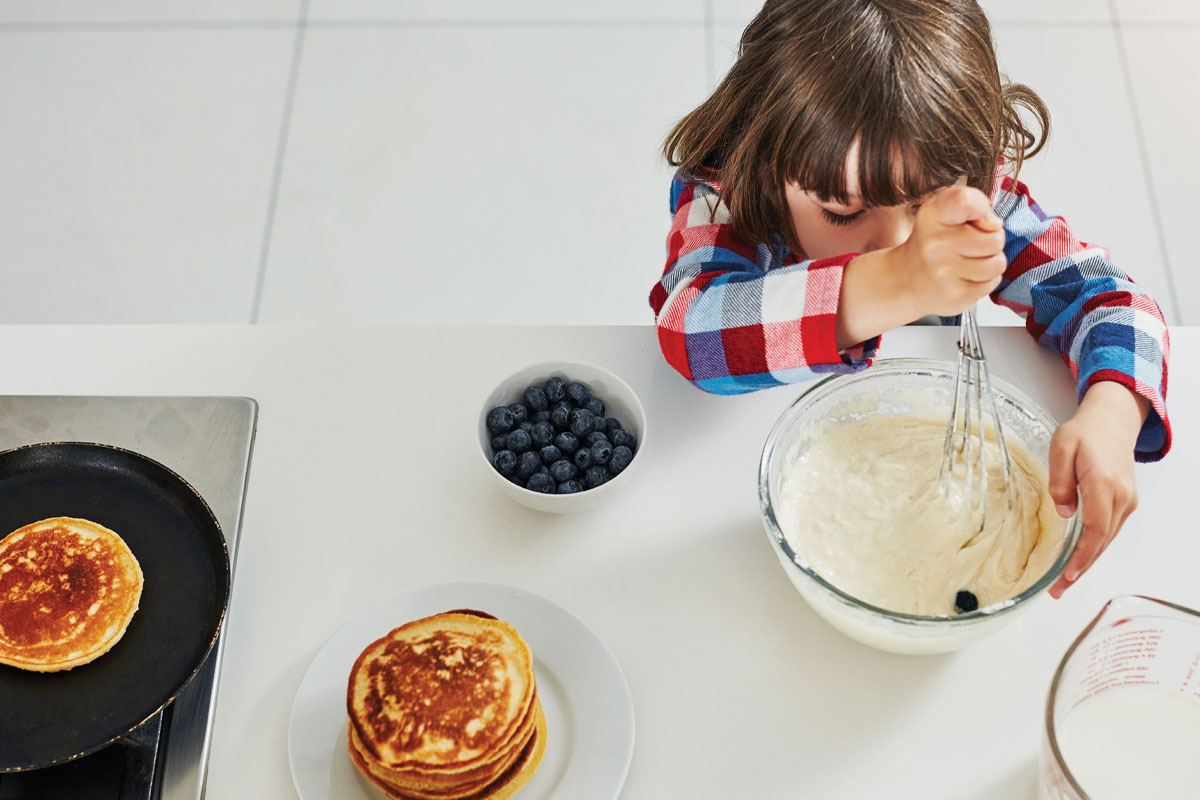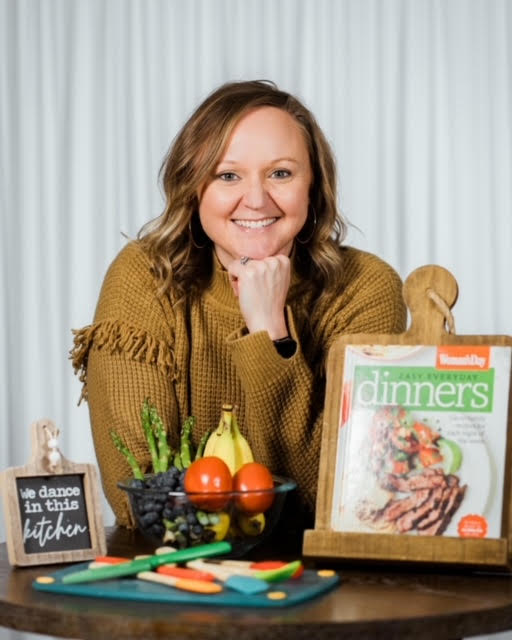by KATIE MAXEY, MS, RD, IBCLC
It seems to be an old-fashioned idea to spend a slow Saturday morning sitting on the kitchen counter learning how to make pancakes with your mother or grandmother for breakfast; or learning the steps to a secret family recipe during a holiday season. But, I did just that, and these moments became etched in my mind forever. I also created skills that will last a lifetime. Now, as a mother with a family involved in many night-time activities and with a set evening routine, spending time in the kitchen with my children is not at the forefront of my mind. In fact, it sometimes feels like it’s going to slow down our family, and who has time for that when there is laundry to do, baths to take and lunchboxes to prep for the next day? But, to teach my children the basics of prepping meals for themselves and creating core memories that will last a lifetime, it is important for me to pause and make sure I incorporate my children in pieces of our kitchen routines.
You may be wondering how you can involve them. There are so many ways, depending on their age! It’s never too early or too late to start. Do you have teenagers? Great! There are ways for them to actively participate in meal planning and cooking. Or, maybe you have a toddler at home just now learning how to effectively get food in their mouths without getting most of it on their face. There is a role for them, too! Find the age category that fits your children, and start brainstorming how they might be able to help. And, don’t forget to think long-term. What do you hope your child remembers when they look back at the time they spent at home with you? What basic kitchen skills do you hope your child is able to take with them as they leave your home and prepare for their next season of life? Let’s hope they can grocery shop, put together a meal with different food groups, slice some vegetables or fruit, and maybe even know how to turn on the stove!
Birth to two years old:
- At this age, it’s important to have your children in the kitchen as you are prepping, cooking, putting away groceries and doing the dishes. Maybe it’s in a swing or a play chair near the kitchen counter. No matter what they are in or doing around you, being able to see you in the kitchen as a daily routine is learning that it’s an important part of the day.
- As they are exposed, your child may become interested in a food item you have on the counter. If it’s safe, allow them to touch it, hold it or put it on their tray so they can be near it. And, if it’s safe, allow them to taste it!
Two to four years old:
- Allow your child to help with the basics of cooking and eating, such as wiping down the kitchen counter before cooking and wiping down the table before eating.
- They can also get their hands in the food, but safely. No utensils are needed for this age. They can use their hands to tear lettuce leaves in half, pull apart broccoli or cauliflower pieces, get bread out of a package and put their hands in dough to help you knead it if you’re making bread from scratch.
- You can also begin to show them the kitchen equipment that is hot and that they should not touch. Begin to teach kitchen safety!
Four to six years old:
- Bring on the utensils and supplies! Your children at this age can help you measure, stir, cut with scissors and maybe even slice vegetables and fruits with a kid-friendly knife. This is all very new to them, so make sure to teach them the basics that now come naturally to you.
- Begin to set routines around mealtimes at this age. They can set the table each night and help to clean it up as well.
- As they are older, it’s important to begin discussing kitchen safety in more detail. Show them how the stove top and oven get hot and how knives can be dangerous, so we need to use them carefully.
Six to eight years old:
- Your children should continue to learn and improve specific cooking skills like measuring, stirring and cutting but doing it more accurately at this age. Do you often use a hand mixer or blender? Teach them how to use it. The more they continue practicing the basic cooking skills, the more it will be ingrained in their brains, and they will take these skills with them as they continue to grow.
- This is also the perfect age to have them help with the meal plan! Involve your children in the grocery shopping and plan for what you all will have for dinner throughout the week. It may not be your favorite dinner meal, but if your child is involved and has asked for that meal, why not plan it? It will empower them to continue to help you brainstorm and be involved in the meal and cooking process.
Eight+ years:
- Recipe comprehension is a great next step for your children as they get to this age. Before now, you’ve probably verbally instructed them on how to cook or meal prep. But, at this age, they may be able to read a basic recipe or read the instructions on a box. Allow them to try to read it and cook it, with your supervision. Don’t underestimate their abilities; give them the platform to show you what they can do as they get older!
- Lean on them as they get older. If you’ve exposed them, taught them the basics, allowed them to get their hands dirty and helped them meal plan, they can certainly begin helping you routinely in the kitchen!



















